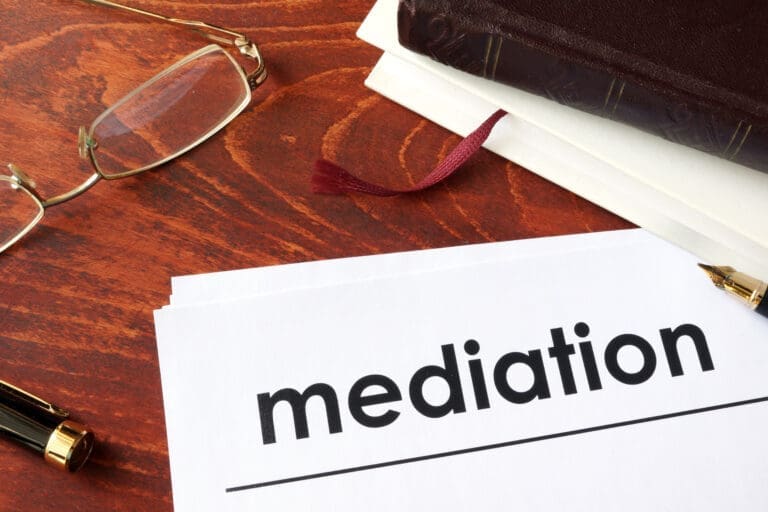
Obtaining a green card through marriage to a U.S. citizen is a multi-step process that requires careful attention to detail and adherence to specific legal requirements. The journey to permanent residency through matrimonial ties involves several critical stages, each demanding thorough documentation and proof of a bona fide marital relationship. This article will provide a comprehensive overview of the steps necessary to secure a marriage-based green card, addressing the nuances of the application process and potential challenges that applicants may encounter.
The first step in obtaining a marriage-based green card is to ensure that the marriage itself is legally valid and recognized by the United States government. This means that the union must be officially documented and registered in the jurisdiction where it took place. Moreover, both parties must have had the legal capacity to enter into marriage at the time of the ceremony. Any previous marriages must have been legally terminated through divorce, annulment, or death of a former spouse. It is crucial to obtain and maintain all relevant documentation, including marriage certificates and divorce decrees, as these will be essential throughout the green card application process.
Once the validity of the marriage is established, the U.S. citizen spouse must file Form I-130, Petition for Alien Relative, with U.S. Citizenship and Immigration Services (USCIS). This petition serves as the foundation of the green card application, formally establishing the relationship between the U.S. citizen petitioner and the foreign national beneficiary. The I-130 petition must be accompanied by supporting evidence that demonstrates the authenticity of the marital relationship. This evidence typically includes joint financial documents, shared lease agreements, photographs of the couple together, and affidavits from friends and family attesting to the genuineness of the marriage.
The filing of Form I-130 is a critical juncture in the green card process, as it initiates USCIS scrutiny of the marital relationship. The agency is particularly vigilant in detecting marriage fraud, which occurs when a couple enters into a marriage solely for the purpose of obtaining immigration benefits. To combat such fraud, USCIS employs various investigative techniques and may require additional evidence or interviews to verify the legitimacy of the union. It is imperative that couples prepare thoroughly for this scrutiny, maintaining comprehensive records of their shared life and being prepared to answer detailed questions about their relationship.
Following the submission of Form I-130, the next step in the process depends on whether the foreign national spouse is already present in the United States or residing abroad. For those already in the U.S., the process of adjustment of status may be available, allowing them to apply for permanent residency without leaving the country. This is typically done by filing Form I-485, Application to Register Permanent Residence or Adjust Status, concurrently with or after the approval of the I-130 petition. The adjustment of status process includes a biometrics appointment, where the applicant’s fingerprints and photograph are taken for background check purposes.
For foreign national spouses residing outside the United States, the process involves consular processing. Once the I-130 petition is approved, the case is transferred to the National Visa Center (NVC) for further processing. The NVC collects additional documentation, including the DS-260 immigrant visa application, police clearances, and financial support evidence. After the NVC completes its processing, the case is forwarded to the appropriate U.S. embassy or consulate in the foreign national’s home country for an immigrant visa interview.
Regardless of whether the applicant pursues adjustment of status or consular processing, a crucial component of the green card application is the affidavit of support. This document, typically Form I-864, is a legally binding contract in which the U.S. citizen spouse agrees to financially support the immigrant spouse. The affidavit of support must demonstrate that the sponsoring spouse’s income meets or exceeds 125% of the Federal Poverty Guidelines for their household size. If the sponsor’s income is insufficient, a joint sponsor may be necessary to meet the financial requirements.
En marriage green card interview is a pivotal moment in the application process. This interview, conducted by a USCIS officer for adjustment of status cases or a consular officer for those processing abroad, serves to verify the authenticity of the marriage and assess the eligibility of the foreign national spouse for permanent residency. Both spouses must attend the interview and be prepared to answer questions about their relationship, shared experiences, and future plans. The interviewing officer may also request additional documentation or clarification on any aspects of the application that require further explanation.
During the interview, the couple may be subject to a Stokes interview, which involves separate questioning of each spouse to compare their answers and detect any inconsistencies that might indicate fraud. It is essential for couples to be honest and consistent in their responses, as discrepancies can lead to delays or denials of the green card application. Preparation for the interview should include reviewing the details of the relationship, gathering additional evidence of the marriage’s legitimacy, and being ready to address any potential red flags in the application.
If the marriage is less than two years old at the time the green card is approved, the foreign national spouse will receive conditional permanent residency valid for two years. This conditional status is designed to deter marriage fraud by allowing USCIS to reevaluate the legitimacy of the marriage after a period of time. Within the 90-day period before the conditional green card expires, the couple must jointly file Form I-751, Petition to Remove Conditions on Residence, to convert the conditional status to permanent residency. This petition requires additional evidence demonstrating that the marriage remains bona fide and ongoing.
For couples who have been married for more than two years at the time of green card approval, the foreign national spouse will receive a standard 10-year green card without conditions. However, it is important to note that USCIS retains the right to investigate the validity of the marriage at any time, even after the issuance of a permanent green card. Maintaining evidence of a continuing marital relationship is advisable throughout the duration of permanent residency.
En green card through marriage process is subject to various legal complexities and potential pitfalls. One such issue is the concept of dual intent, which becomes relevant for foreign nationals who entered the United States on nonimmigrant visas that prohibit immigrant intent, such as B-1/B-2 visitor visas or F-1 student visas. While marrying a U.S. citizen does not automatically violate the terms of these visas, it can raise questions about the foreign national’s original intentions upon entry to the U.S. Applicants in this situation must be prepared to address any concerns regarding their immigration history and demonstrate that they did not misrepresent their intentions when obtaining their nonimmigrant visa.
Another legal consideration is the impact of unlawful presence on green card eligibility. Foreign nationals who have accrued unlawful presence in the United States may be subject to bars on reentry if they leave the country. These bars can range from three to ten years, depending on the duration of unlawful presence. In some cases, waivers may be available, but the process of obtaining a waiver can be complex and time-consuming. It is crucial for applicants with periods of unlawful presence to seek legal counsel to navigate these challenges and determine the best course of action for their green card application.
En public charge rule is another significant factor in the marriage-based green card process. This rule assesses whether an immigrant is likely to become primarily dependent on government assistance. While the specific implementation of this rule has been subject to policy changes, it remains an important consideration in green card applications. Applicants must demonstrate that they have sufficient financial resources or sponsorship to avoid being deemed a public charge. This may involve providing evidence of employment, assets, or additional financial support from family members or joint sponsors.
For same-sex couples, the process of obtaining a marriage-based green card has been legally equivalent to that of opposite-sex couples since the 2013 Supreme Court decision in United States v. Windsor, which struck down the Defense of Marriage Act. However, same-sex couples may face additional scrutiny or challenges in proving the bona fides of their relationship, particularly if they come from countries where same-sex relationships are not legally recognized or are stigmatized. These couples should be prepared to provide robust evidence of their commitment and shared life together.
En K-1 fiancé(e) visa is an alternative pathway for couples who are not yet married but intend to do so in the United States. This visa allows the foreign national fiancé(e) to enter the U.S. for the purpose of marrying their U.S. citizen petitioner within 90 days of arrival. After the marriage, the foreign national spouse can then apply for adjustment of status to obtain a green card. While this process can be faster in some cases, it also comes with its own set of requirements and potential complications, including the need to prove a bona fide intention to marry and the risk of being required to leave the U.S. if the marriage does not occur within the specified timeframe.
En Violence Against Women Act (VAWA) provides a pathway to permanent residency for spouses who have been subjected to battery or extreme cruelty by their U.S. citizen or permanent resident spouse. VAWA self-petitions allow victims of domestic violence to seek immigration benefits without the abusive spouse’s knowledge or cooperation. This provision is crucial for protecting vulnerable immigrants and ensuring that fear of losing immigration status does not trap individuals in abusive relationships. VAWA self-petitioners must provide evidence of the abuse and meet other eligibility criteria, but they are not required to maintain the marital relationship to obtain or keep their green card.
Conditional permanent residents face unique challenges in the green card process. If a marriage ends before the conditions are removed from the green card, the foreign national spouse may still be eligible to file for a waiver of the joint filing requirement for Form I-751. Waivers may be granted on several grounds, including divorce, extreme hardship, or battery or extreme cruelty. However, obtaining such waivers requires substantial evidence and can be a complex legal process. Conditional residents should be aware of the deadlines for filing Form I-751 and seek legal assistance if their marital situation changes before the removal of conditions.
En Child Status Protection Act (CSPA) is relevant for marriage-based green card applicants with children. This act allows certain children to retain their classification as “children” for immigration purposes even after turning 21, protecting them from “aging out” of eligibility for derivative benefits. Understanding the implications of the CSPA is crucial for families navigating the green card process, as it can affect the timing and strategy of their applications to ensure that all eligible family members can obtain permanent residency.
Adjustment of status applicants should be aware of the 245(i) provision of the Immigration and Nationality Act. This provision allows certain individuals who entered the U.S. without inspection or who violated their nonimmigrant status to adjust status upon payment of a penalty fee, provided they are the beneficiaries of immigrant visa petitions or labor certifications filed on or before April 30, 2001. While this provision is not specifically tied to marriage-based cases, it can be a crucial factor for some applicants who might otherwise be ineligible to adjust status within the United States.
En Adam Walsh Child Protection and Safety Act impacts certain U.S. citizens’ ability to petition for foreign national spouses. This act prohibits U.S. citizens convicted of specified offenses against minors from filing family-based immigrant petitions unless USCIS determines that the petitioner poses no risk to the beneficiary. This provision adds an additional layer of complexity for affected petitioners and may require extensive documentation and legal argumentation to overcome.
In conclusion, obtaining a green card through marriage to a U.S. citizen is a complex process that requires careful navigation of immigration laws and procedures. From establishing the legitimacy of the marital relationship to addressing potential legal obstacles, each step demands thorough preparation and attention to detail. Applicants must be prepared to provide extensive documentation, undergo interviews, and potentially address complicated legal issues throughout the process. While the reward of permanent residency is significant, the path to achieving it through marriage is rigorous and designed to ensure the integrity of the immigration system. As immigration policies and procedures can change, it is advisable for couples pursuing a marriage-based green card to stay informed of current requirements and consider seeking professional legal guidance to navigate this intricate process successfully.
Website citations used for this article:
- https://www.uscis.gov/green-card/green-card-eligibility/green-card-for-immediate-relatives-of-us-citizen
- https://www.boundless.com/immigration-resources/marriage-based-green-cards-explained/
- https://www.nolo.com/legal-encyclopedia/free-books/fiance-marriage-visa-book/chapter2-8.html
- https://www.ashoorilaw.com/green-card-through-marriage/
- https://www.fragomen.com/insights/marriage-based-green-cards-part-1-eligibility-and-process-considerations.html
- https://www.uscis.gov/policy-manual/volume-12-part-g-chapter-2
- https://www.shautsova.com/law-publications/obtaining-marriage-based-green-card-comprehensive-guide.html
- https://www.boundless.com/immigration-resources/who-can-apply-for-a-marriage-based-green-card/
- https://www.uscis.gov/family/same-sex-marriages
- https://www.cliniclegal.org/resources/family-based-immigration-law/spousal-petitions/practice-advisory-sham-marriages-and








